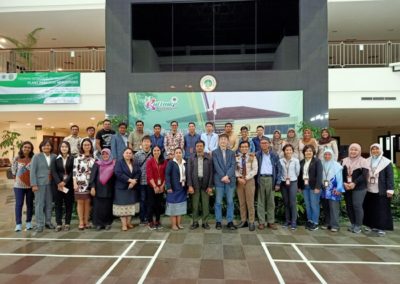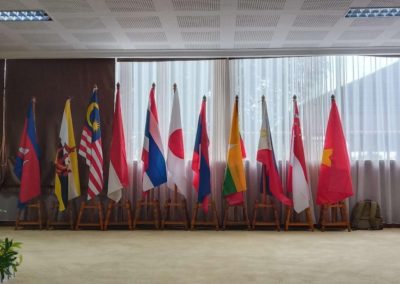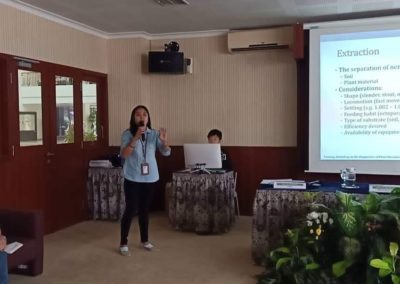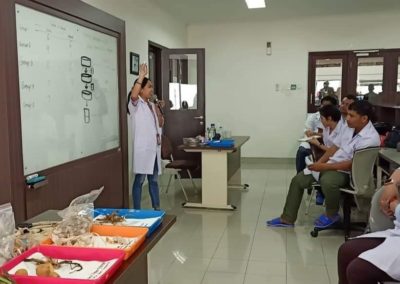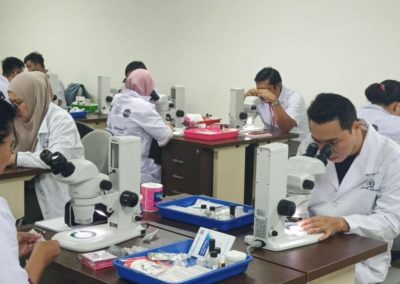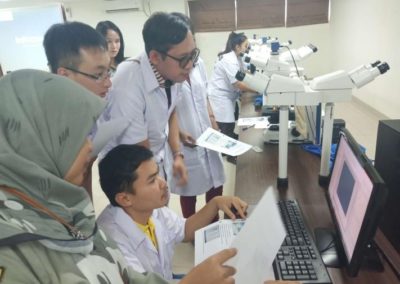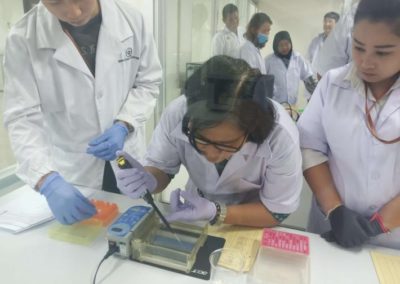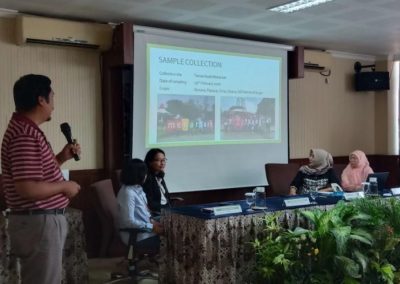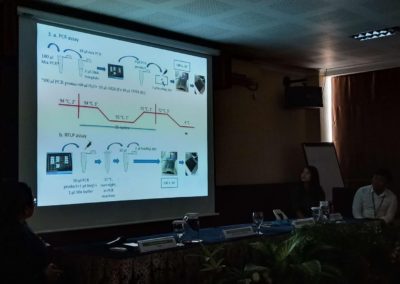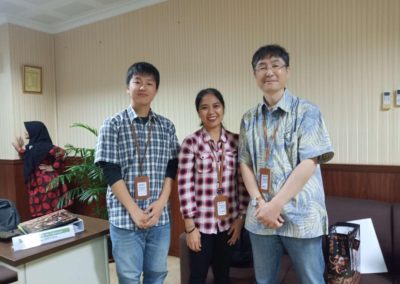(RALimpiada and MS Pinili; photo credit: Dr. Ummu Salamah Rustiani, ARIAQ)
A two-week training workshop on Diagnostics of Plant Parasitic Nematodes for ASEAN countries was conducted at the Applied Research Institute for Agriculture Quarantine (ARIAQ) Bekasi, West Java, Indonesia last February 23 to March 7. The workshop was designed to enhance the technical capability of South-East Asian phytonematologists in identifying plant-parasitic nematodes (PPN) at molecular and morphological levels.
The Japan-ASEAN Integration Fund, in collaboration with ARIAQ, fully funded the training workshop, which was coordinated by Dr. Marita S. Pinili, a nematologist and the NCPC Plant Pest Management division head in the University of the Philippines Los Banos. The other key persons involved in the training workshop were Dr. Soetikno S. Sastroutomo from APHCN-ASEANET, who headed the organizing team, and Dr. Ummu Rustiani from ARIAQ who led the logistics team
Twenty-three selected participants from Brunei Darussalam, Cambodia, Indonesia, Laos, Malaysia, Myanmar, Philippines, Singapore, Thailand, and Vietnam attended the workshop.
Director-General Ali Jamil of Indonesian Agricultural Quarantine Agency (IAQA), Ministry of Agriculture, Jakarta, Indonesia, and Director Wawan of ARIAQ were the guests during the opening program.
One of the sessions led by Dr. Pinili was the lecture on nematode extraction techniques, wherein she discussed the principles, advantages, and disadvantages of each extraction method.
Aside from lectures, the participants did sample collections for the laboratory activities in Taman Buah Mekarsari, Bekasi, Indonesia. Microscopic activities were conducted during the laboratory practical wherein each participant was tasked to pick live and fixed nematodes for tentative morphological identification. The participants also conducted morphometrical and molecular activities to identify plant-parasitic nematodes from various crops.
The participants presented by groups the activity results and the important findings on the nematode identification using morphological and molecular assays.
During the closing ceremony, two participants from the Philippines and Brunei Darussalam shared their testimonies. The event ended with a farewell party organized by ARIAQ.

